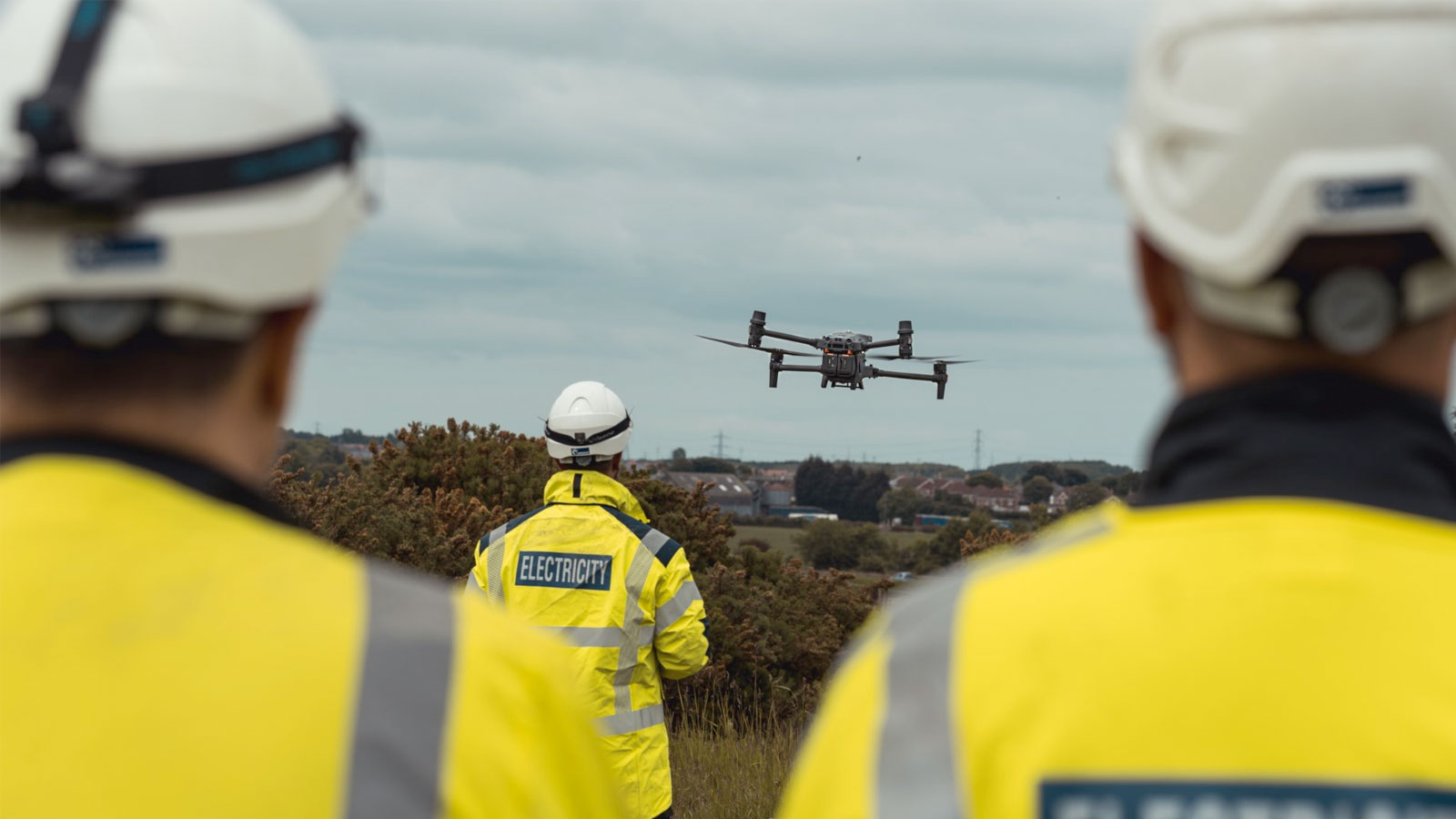UK Power Networks is embracing drone technology to enhance its fault response capabilities and expedite power restoration efforts.
The distribution network operator is currently piloting the use of high-resolution drones to inspect overhead power lines in rural areas, aiming to pinpoint faults and expedite restoration times by up to 30 minutes.
Eight engineers at UK Power Networks have undergone specialised drone piloting training with Heliguy, a drone training and service provider. These trained pilots will operate DJI Mavic 3 drones, equipped with advanced cameras and sensors, to capture detailed aerial imagery of power lines. This imagery will then be analysed to identify any potential defects or damage, enabling repair crews to mobilise promptly and efficiently.
Phil Burke, the trial lead at UK Power Networks, emphasises the potential benefits of this innovative approach: “Flying drones will cut our restoration times by 30 minutes on average, allowing us to restore power to customers faster and minimise the disruption caused by power cuts.”
Traditionally, line inspectors would manually traverse overhead power lines, which can be time-consuming and potentially hazardous. Drones, on the other hand, can swiftly and safely survey extended sections of transmission infrastructure, providing comprehensive insights from a bird’s eye view.
Jack Sharp, a Heliguy instructor, underscores the transformative power of drone technology in the utility sector: “Drones are a game-changer for utility inspections, enabling highly accurate data collection while enhancing safety and efficiency.”
The drone pilot training and trial program at UK Power Networks represents a significant step forward in leveraging cutting-edge technology to optimise power grid operations. As the company continues to explore the capabilities of drones, it is paving the way for a more resilient and efficient power network.
While drones offer a valuable tool for aerial inspection and fault detection, foot patrols will still be employed in specific scenarios, such as inclement weather or low-visibility conditions. Additionally, the company’s regular helicopter patrols will continue to cover longer distances more quickly, further enhancing the comprehensiveness of its fault response strategy.

